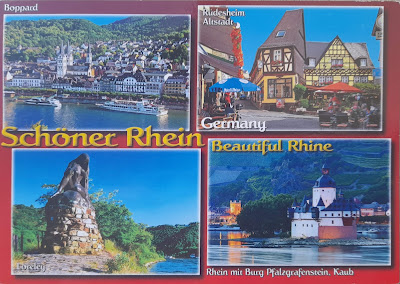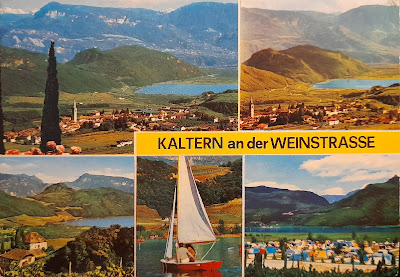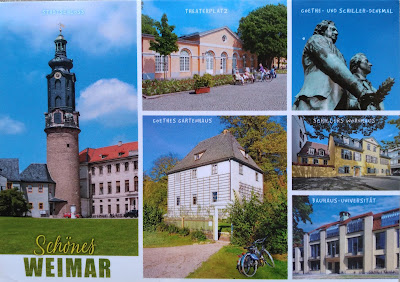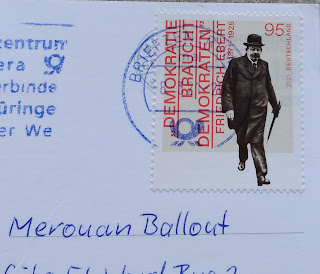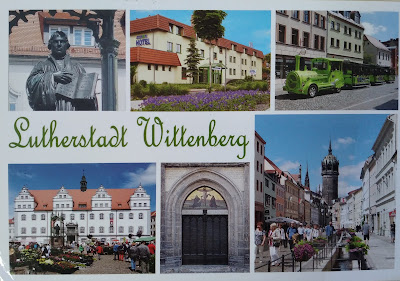Postcards is wonderful way to discover world culture,every day i wish to find a new card in mailbox, it's amazing.
Dec 25, 2024
Dec 22, 2024
Dec 21, 2024
Dec 19, 2024
Schloss Petershagen
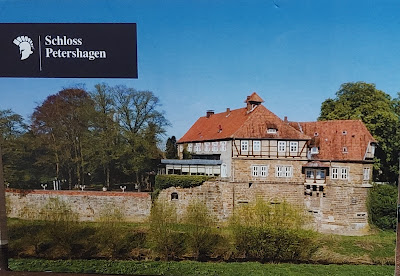 |
| Schloss Petershagen |
Schloss Petershagen
Schloss Petershagen, nestled in the charming town of Petershagen in North Rhine-Westphalia, Germany, is a historical gem that has stood the test of time. Built initially as a water castle in 1306, this remarkable structure has evolved through the centuries, showcasing the architectural splendor of the Weser Renaissance. Today, it stands as a testament to the rich history and cultural heritage of the region, inviting visitors to explore its storied past and picturesque surroundings.
The Origins of Schloss Petershagen
The origins of Schloss Petershagen date back to the early 14th century when it was constructed by Bishop Gottfried von Waldeck of Minden. Originally built as a defensive fortress, the castle was strategically positioned to protect the northern territories of the Bishopric of Minden. Dedicated to Saint Gorgonius, the castle was a symbol of the bishop's authority and a bulwark against potential invaders.
In the mid-16th century, under the direction of Bishop Franz von Waldeck, the fortress underwent a significant transformation. The Swabian master builder Jörg Unkair was commissioned to convert the medieval stronghold into a magnificent Renaissance-style palace. Using both dark Porta sandstone and light Obernkirchen sandstone, Unkair crafted a stunning example of early Weser Renaissance architecture. Although the construction was cut short due to the Schmalkaldic War, the castle's distinctive features, including an irregular two-wing layout, a polygonal stair tower, and a bastion facing the Weser River, remain notable highlights.
From Fortress to Residence
Throughout its history, Schloss Petershagen played a pivotal role in the region's political and military affairs. During the Thirty Years' War, the castle, like much of the Prince-Bishopric of Minden, fell under Swedish occupation. Following the Peace of Westphalia in 1648, the territory was ceded to Brandenburg-Prussia, and the castle became the seat of the governor of Minden from 1649 to 1659. It was within these walls that the Great Elector Frederick William received homage as the new sovereign in 1650.
After the seat of government moved from the castle in 1669, the once-mighty fortress began to decline. Several buildings collapsed or were demolished, and a fire in 1780 destroyed the main staircase roof. However, the late 19th and early 20th centuries brought a revival of interest in the castle. In 1901, Heinrich Hestermann, a farmer and Reichstag deputy, purchased the property and initiated renovations to restore it to a habitable state.
Source
https://www.mycityhunt.com/cities/petershagen-de-2151/poi/schloss-petershagen-22562
Nov 26, 2024
May 19, 2024
Apr 23, 2023
Apr 14, 2023
Jan 10, 2023
Sep 1, 2022
Thüringen
Thanks To ernstelli
Stamps
- Alpine Ibex (Capra ibex)
Country:
Germany, Federal Republic
Series:
Baby Animals 2021
Themes:
Animals (Fauna) | Goats | Infant Animals | Mammals
Issued on:
2021-06-10
KALTERN an der WEINSTRASSE
Thanks to Sandra received 27/Aug/2022
One of the most beautiful wine villages in the world.
Stamps from top Down
Aug 28, 2022
Today is going to be a great day
Thanks to Angelina from Postcrossing , received 27/Aug/2022
Stamps:
Alpine Ibex (Capra ibex)
Country:
Germany, Federal Republic
Series:
Baby Animals 2021
Themes:
Animals (Fauna) | Goats | Infant Animals | Mammals
Issued on:
2021-06-10
Feb 17, 2022
FAGUS WERK
The Fagus Factory, begun in 1911 in Alfeld, Lower Saxony, is regarded as one of the earliest examples of modernist architecture. It is the first factory building by the future founder of the Bauhaus, Walter Gropius, in collaboration with Adolf Meyer. Since 2011, this elaborately restored and modernized building complex has been a UNESCO World Heritage Site.
source (https://www.bauhauskooperation.com/knowledge/the-bauhaus/works/architecture/fagus-werk-factory-alfeld/)
stamps from right to left
- Aster novae - Autumn Aster
Country:
Germany, Federal Republic
Series:
Flowers definitives (2005-present)
Themes:
Flowers | Plants (Flora)
Issued on:
2005-06-02
- Birth Centenary of Heinz Sielmann (1917-2006)
Country:
Germany, Federal Republic
Variants:
Click to see variants
Themes:
Animals (Fauna) | Birds | Cameras | Geese | Photographers
Issued on:
2017-06-08
Dec 20, 2021
München
Thanks to Stefan for the card , sent 01.11.2021
Munich (München in German) means "home of the monks", a name that stems from the Benedictine monastery founded in the area around the mid-8th century. While there is evidence of settlements in the area dating back to the Neolithic period, and the wider region of Bavaria has a history entwined in the Roman Empire, the first time that Munich was mentioned by in a document was in 1158, and this date is generally accepted as its foundation.
stamps from right to left :
- Rothenburg ob der Tauber
Country:
Germany, Federal Republic
Series:
Germany´s Most Beautiful Panoramas 2019
Themes:
Townscapes / City Views
Issued on:
2019-04-04
- Zinnia
Country:
Germany, Federal Republic
Series:
Flowers definitives (2005-present)
Themes:
Flowers | Plants (Flora)
Issued on:
2020-04-02
Schones WEIMAR
A residential city in the center of Europe where ideas and works of art were born that have spread throughout the world. Today the famous names of the past still resound: Goethe and Schiller. Bach and Liszt. Modernity and the Bauhaus. Wide open spaces, open squares and narrow streets, the houses of Goethe and Schiller, museums and castles - the history of European culture concentrated in a very small area and honored by UNESCO with a World Heritage Site.
However, Weimar remains true to its identity today. Vibrant, dynamic and internationally oriented - visitors discover art and culture, music and history, light music and young creativity with enthusiasm. Alongside all the splendors of the city of culture, places of remembrance remind us of the dark times in Weimar's history. The Ettersberg memorial is dedicated to presenting the atrocities of the Buchenwald concentration camp and the depths of social exclusion and violence.
Stamp:
- Friedrich Ebert, President, 150th Birth Anniversary
Country:
Germany, Federal Republic
Themes:
Famous People | Headgear | Heads of State | Politicians
Issued on:
2021-02-04
Dec 13, 2021
Lutherstadt Wittenberg
Thanks to Sylvia for the nice card.
The Luther memorials in Wittenberg were recognized as World Heritage Sites in December 1996, because they "represent a significant milestone in human history and are of outstanding universal significance as authentic sites of the Reformation." The Schlosskirche (Castle Church), Lutherhaus (Luther House), Stadtkirche (City Church) and Melanchthonhaus (Melanchthon House) are part of the heritage.
Wittenberg was the center of his reformation activities, and the castle church, in whose portal he posted his 95 Theses on October 31, 1517, later became his final resting place, as well as that of Phillip Melanchthon, one of his closest followers.
Stamp
- Marienplatz Station, Munich
Country:
Germany, Federal Republic
Themes:
Undergrounds (Subways)
Issued on:
2020-04-02

















